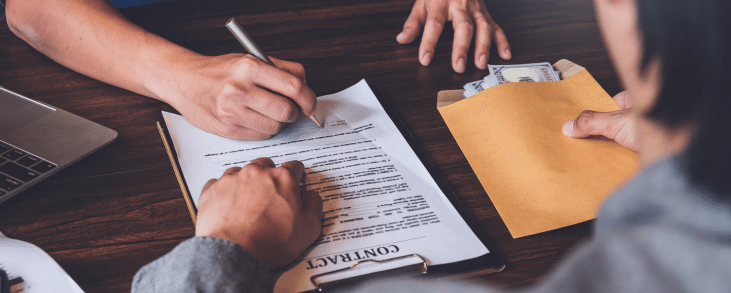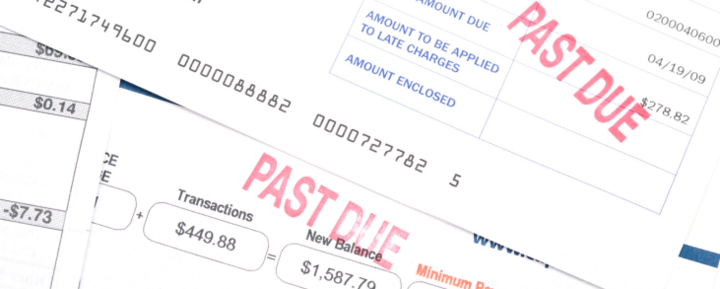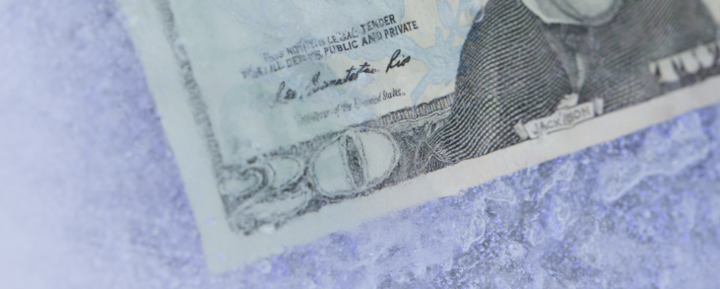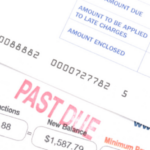In the unpredictable world of business and entrepreneurship, some business owners eventually face the tough decision to close their doors. Perhaps your business benefited from an Economic Injury Disaster Loan (EIDL) during times of hardship. Now the question is: What happens to the EIDL when the business is no longer operational?
From understanding your obligations under the loan agreement to exploring potential resolutions with the Small Business Administration (SBA), it’s important to the implications for your EIDL and how to ensure a responsible and strategic business closure.
The Influence of Business Closure on EIDL Loans
Definition of Going Out of Business
“Going out of business” refers to the process where a company ceases operations permanently. This often involves shutting down all business activities, selling company assets, and fulfilling any remaining financial obligations. The reasons for a business closing can vary widely. It may be due to financial difficulties, strategic decisions to exit the market, an economic downturn, or increased competition.
How Business Closure Impacts EIDL Loan Repayment
If you are going out of business and you have an outstanding EIDL, several important considerations need to be addressed.
For one, the EIDL still has to be repaid according to the loan terms, even if your business closes. These SBA loans are not typically dischargeable in bankruptcy, except under certain circumstances. If you don’t continue making payments, you’ll default on the loan.
Consequences of Failing to Repay EIDL Loans
Failing to repay an Economic Injury Disaster Loan can have serious legal and financial implications for the borrower.
Legal Implications
The SBA can initiate legal action to recover the owed amount, which might include filing a lawsuit against the borrower. This could lead to judgments against the borrower, which has significant financial consequences.
Financial Repercussions
Failure to make your payments as agreed upon can lead to the loan being declared in default. This typically triggers more aggressive collection efforts by the SBA and its servicing agents. Once in default, the SBA may require the immediate repayment of the full outstanding balance of the loan, rather than just the missed payments.
The government also has significant powers to collect defaulted loan amounts. This can include:
- Garnishment of wages:
- Seizure of tax refund
- Seizure of federal benefits
Additionally, defaulting on an EIDL will negatively impact the borrower’s credit score. This could make obtaining future credit more difficult or expensive; the default will remain on the credit report for up to seven years.
If the loan was secured by collateral, the SBA might place liens on these assets, which could eventually be seized or foreclosed to satisfy the debt. Further, for EIDLs, personal guarantees are often required for loans over a certain amount. This means that the personal assets of the guarantor(s) may be at risk if the business fails to repay the loan.
Dealing with EIDL Loan After Business Closure
If your business has assets, selling them can be a way to generate cash to repay the loan. This might include inventory, equipment, or property. The proceeds from these sales can then be used to pay down the debt.
Can an EIDL Loan be Discharged in a Business Bankruptcy?
An Economic Injury Disaster Loan can potentially be discharged in a business bankruptcy, depending on the circumstances and the type of bankruptcy filed:
- Chapter 7 (Liquidation): In a Chapter 7 bankruptcy, the business ceases operations, and its assets are liquidated to pay creditors. Any remaining unsecured debts, potentially including EIDLs, can be discharged if they are not tied to any collateral.
- Chapter 11 (Reorganization): Businesses filing under Chapter 11 aim to reorganize and continue operations. Debts may be restructured, and terms renegotiated with creditors, including potentially discharging some portion of debts under a new reorganization plan. However, the full discharge of an EIDL is less likely under Chapter 11 unless the business eventually liquidates.
- Chapter 13 (For Sole Proprietors): Similar to Chapter 11 but for individuals, including sole proprietors, Chapter 13 involves a repayment plan over three to five years. Unsecured debts, potentially including EIDLs, can be partially or fully discharged upon completion of the payment plan.
Is It Possible to Settle an EIDL Loan?
It may be possible to settle an EIDL, but it generally involves negotiations with the Small Business Administration. Settling a loan means you pay less than the total amount owed under certain circumstances.
To consider a settlement, the SBA typically requires that the borrower demonstrate financial hardship that makes full repayment of the loan impossible or highly impractical. This could be due to a significant downturn in business, other large debts, or unexpected financial burdens.
The primary method for settling an SBA loan is through an Offer in Compromise. This involves submitting a proposal to the SBA to pay a lump sum amount that is less than the full balance owed. The offer must convincingly argue that it represents the maximum amount that the SBA can expect to recover within a reasonable timeframe.
The OIC must include detailed financial statements, evidence of financial distress, and other relevant documentation. It’s crucial that you prove the offer is the best the SBA can realistically expect to collect.
Steps to Take if Your Business is Closing
How to Inform the SBA About the Business Closure
It’s important to Inform the SBA right away that your business is closing. Provide them with details regarding the closure and discuss the status of your EIDL. This early communication can be important for negotiating any potential adjustments to your repayment terms.
Write a formal letter or email to the SBA stating that your business is closing. Include all pertinent details:
- Business name and contact information.
- Your name and position.
- SBA loan number and any other relevant account details.
- Effective date of business closure.
- A brief explanation of why the business is closing.
- Plans for liquidating assets and repaying outstanding debts, including the EIDL.
It’s helpful to express your willingness to cooperate and comply with the terms of the loan agreement during the closure process.
After sending the formal notification, it’s a good idea to follow up with a phone call to ensure they have received your message and to discuss any immediate actions or additional information required. You can contact the SBA’s customer service center, the local office, or bank that managed your loan.
Options for Repaying Your EIDL Loan
If possible, start liquidating your business assets. The proceeds from these sales can be used to pay down the EIDL and other outstanding debts. Prioritize selling assets that are not pledged as collateral first, unless instructed otherwise by the SBA.
If repaying the loan in full is not feasible, contact the SBA to discuss possible options like an Offer in Compromise or a loan modification. Be prepared to provide financial documentation that supports your request.
Get Legal Advice
If you’re struggling to keep up with your EIDL payments and worried about defaulting—or if you’re already in default and exploring your options—it’s important to seek advice from a seasoned debt relief or debt help attorney. These circumstances can feel incredibly daunting, but the last thing you want to do is wait to take action.
By consulting with an expert attorney, you can proactively manage your situation and help prevent potential personal liability lawsuits related to your EIDL.
Having a team that can navigate the challenging world of EIDL debt resolution may make the difference in your ability to recover after your business closes. We at Tayne Law Group offer a free, no-obligation phone consultation to get to know your business and its challenges. We will discuss what types of services we can provide, including a strategy that makes sense to help you resolve your EIDL debt. Don’t let your business debt problems get out of hand. Call us today toll-free at (866) 890-7337 or fill out our short contact form. We never share or sell your information and all conversations are confidential.








